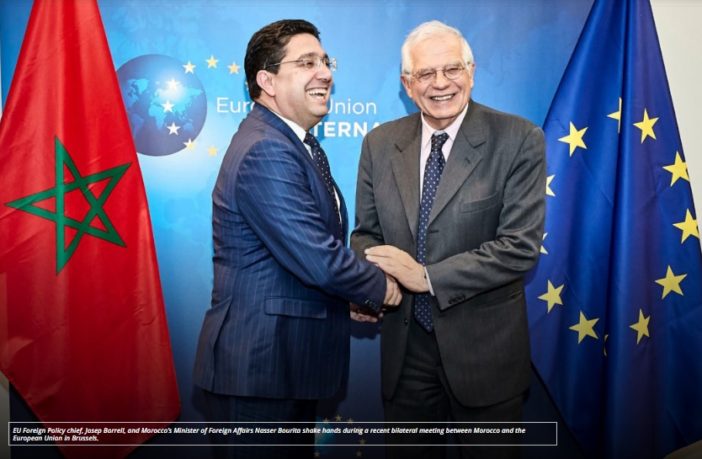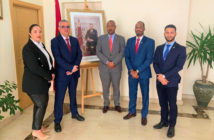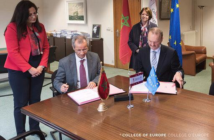New Europe
By Nicholas Waller
During a meeting in Brussels on January 29, the EU’s Foreign Policy Chief Josep Borrell and Morocco’s foreign minister,Nasser Bourita, greeted one another with the sort of gusto that is reserved for only the closest of diplomatic partners.
In the often harsh of foreign policy realpolitik, the rare moments when two veteran diplomats can meet and genuinely express their desire to forge closer ties are often few and far between.
The meeting between Borrel and Bourita was one of those exceptional occasions. Their discussion, which took place with Morocco’s ambassador to the EU, Ahmed Rahhou, on hand, touched on the deepening relations between Rabat and Brussels as well as their areas of joint cooperation both regionally and internationally.
“We are taking the initiative to make contact with the new European officials so we can capitalise on the already very positive dynamics that have been launched over the past year with the European Union,” Bourita said, adding, “Morocco and the EU both want to strengthen their partnership so we can face common challenges. The Kingdom (of Morocco) wants a more peaceful, more substantial, and better structured cooperation with the EU and a relationship of equals in which the two parties work together to defend the foundations, parameters, and objectives of their partnership”.
For his part, Borrell highlighted what he called “serious and credible” efforts by Morocco to find a fair solution to the situation in Western Sahara – the sparsely-populated, energy-rich southern provinces of Morocco that has, since the early 1970s, been the site of a bitter conflict with the Algeria-backed Polisario Front, a left-wing rebel group that has attempted to carve out a secessionist state in Western Sahara.
Morocco presented a proposal for autonomy for Western Sahara in 2007, which remains the basis for any future negotiations for Rabat.
“The EU Executive has taken a positive note of Morocco’s serious and credible efforts to reach a solution (in Western Sahara),” said Borrell, who encouraged all parties to “continue their involvement with a spirit of realism and commitment.”
During his tenure as Spain’s foreign minister, Borrell had first-had experience with Western Sahara issue and in their joint statement about the situation in Morocco’s southern regions both Borrell and Bourita said a solution to the dispute should be based on a commitment that is fully in line with previous resolutions by the UN Security Council, specifically Resolution 2494 of October 30, 2019.
Resolution 2494 extended the United Nations’ mission in Western Sahara until October 2020 and reaffirmed its commitment to assisting all parties involved in Western Sahara to achieve a lasting and mutually acceptable political solution.
The two veteran diplomats each congratulated themselves on the significant progress that has made since the last association council between the two parties was held in June 2019. Borrell and Bourita specifically reiterated that further progress needs to made towards finalising a more robust and structured partnership
“The EU-Morocco partnership is more necessary now than ever,” they two emphasised after their talks while also adding, “Joining forces to stimulate regional cooperation for the benefit of stability, prosperity, and inclusive development is essential,” which guarantees that both parties could “better respond to regional and global challenges.”
The two also touched on several ongoing regional challenges, particularly in Libya and Africa’s Sahel region, and reaffirmed the European and Moroccan commitment to peace and security in the Middle East and the Maghreb and said both sides are willing to continue their support for a political solution to the Libyan Civil War.
Borrell also congratulated Morocco for its “continued stability” and the strength of “the deep reforms and considerable changes” that the country has experienced during its still-ongoing modernisation and development drive under the stewardship of King Mohammed VI.
“The uniqueness of Morocco’s model, as well as the achievements of the EU-Morocco association in its political, economic, cultural and human sections makes Morocco a privileged partner of the European Union.”







